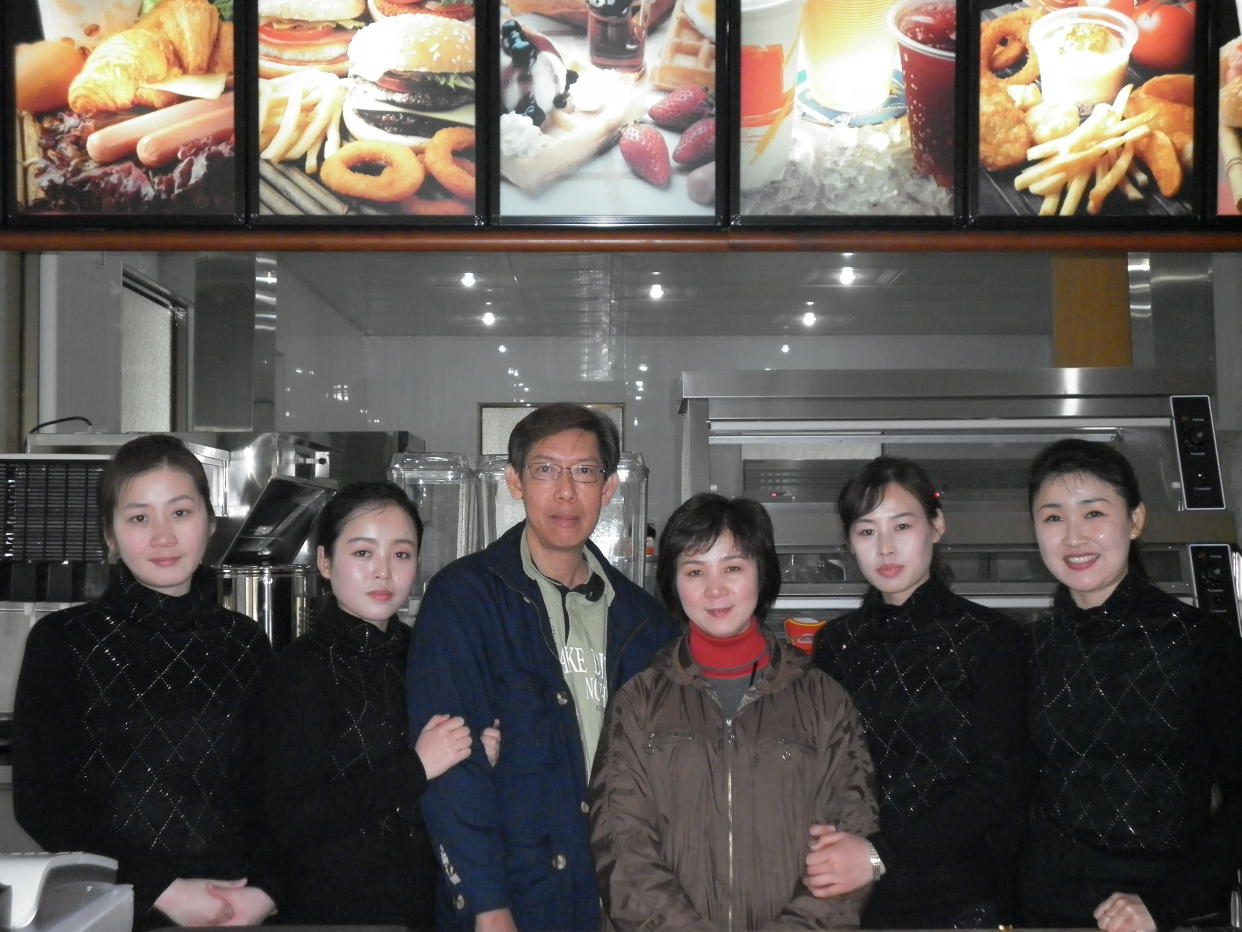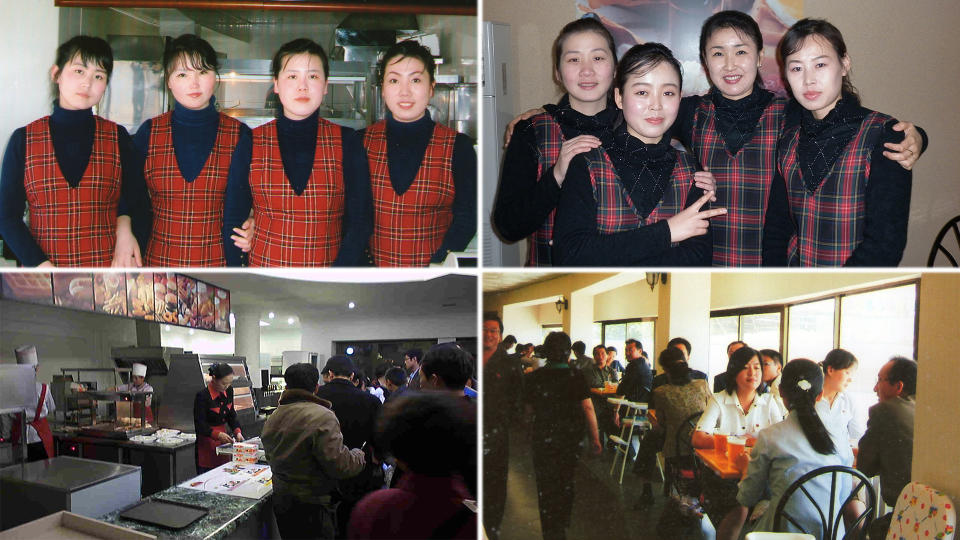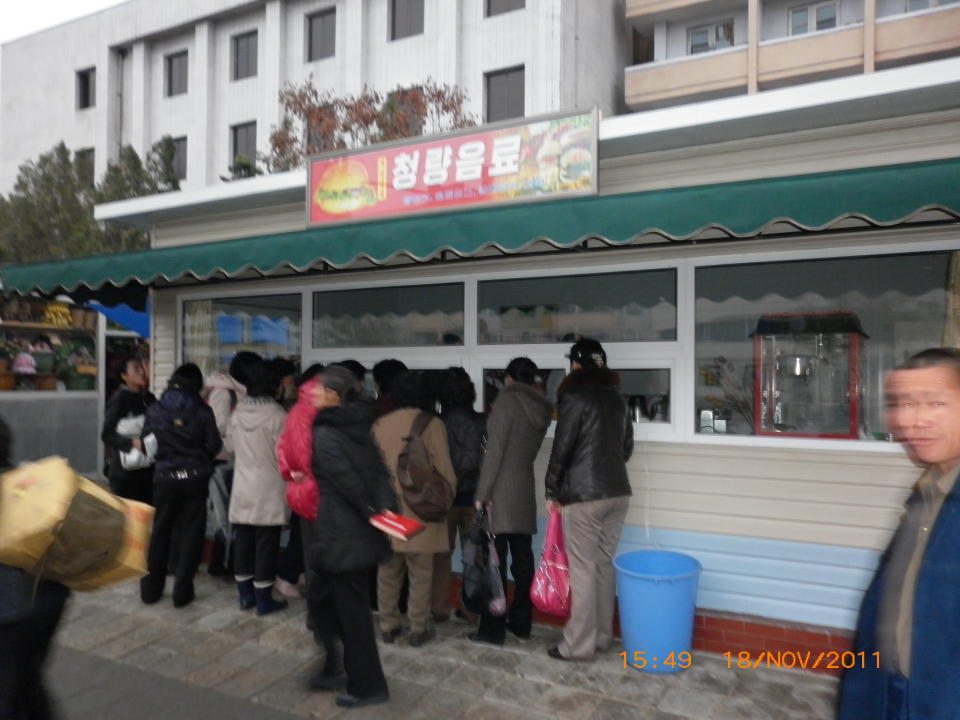'I like a challenge', says Singaporean co-founder of North Korea's first fast food joint

Grim, unsmiling faces. That was the first impression that struck Patrick Soh on his maiden trip to North Korea in 2008.
He had been invited on the trip by two Singaporean businessmen – Quek Cher Lan and Timothy Tan – to explore setting up the Hermit Kingdom’s first fast food restaurant. Where many would have seen great risk, Soh saw a business opportunity.
“I’m a fighter… I like a challenge,” said Soh, who owns the Asian franchise of US fast food chain Waffletown.
By April 2009, he and his partners had set up the first branch of Samtaesong (meaning “three big stars”) in North Korea’s sprawling capital of Pyongyang. A Korean name was needed for the business as English signage was not allowed in the country at the time.
Samtaesong now has five large dine-in eateries and over 20 takeaway outlets spread out across the city of more than three million people, said Soh, who described business as “healthy”. Its biggest outlet is housed in a three-storey building with a production area in the basement, restaurant on the ground floor and an administrative office space above that.
Serving western fare such as fried chicken, waffles and burgers, Soh said his customer base comprises foreign embassy workers, students, local professionals and middle-class families.
The only bit of localisation: putting kimchi (salted fermented vegetables) instead of coleslaw on the menu. Unlike Waffletown, Samtaesong serves beer – North Korea’s own Taedonggang brand – at its outlets.
When asked by Yahoo News Singapore why the restaurants have become so popular in North Korea, Soh said he was not sure himself. But he agreed with this reporter’s suggestion that it may have something to do with the city’s weather, which can see temperatures dropping to -10 degrees Celsius during the winter months.
He added that local customers enjoy Samtaesong’s fried chicken as it is cooked on the spot and served crispy yet moist.
“The standard I set is when you peel the skin and you can see the steam come out,” said Soh.

Sign of the times
Over the past decade, Soh – who is in his early 60s and travels to North Korea up to three or four times a year – has witnessed the changes in Pyongyang and gained a great respect for its people.
“People there never grumble and never complain,” he said, adding that the many staff members he has trained were “eager to learn, hardworking and disciplined”.
With the social order being strictly enforced, Soh observed that Pyongyang’s crime rate seemed to be “almost zero” and that most locals he had met were educated, family oriented and “very loyal” to their country.
As housing, healthcare and education is provided for by the state, North Koreans in Pyongyang appeared to have “no pressures (and) no tensions” and come came across as a “very happy people”, he said.
Citing the modernisation efforts undertaken by Kim Jong Un since he became the nation’s leader in 2011, Soh said he has seen the country’s economy grow steadily with more jobs created. Signs of the improvement can be seen in the rising number of cars, smartphones and cafes serving high-end coffee in the city.
With the cheapest Samtaesong burger costing US$1.90 (S$2.50), a meal there can be out of reach for many locals. Nonetheless, Soh said he has been seeing more young customers at the restaurants.
North Koreans are also becoming more enterprising, Soh noted, citing the many food vendors who own their own business.
Along with modernisation, certain restrictions have been loosened as well. Previously, Soh was not allowed to bring along his mobile phone on any trip to Pyongyang but he can now take pictures and videos with his phone.
However, Internet access and the flow of information is strictly controlled for most people in the country. E-mail addresses, for instance, are granted by the government to a select group of people, such as businessmen.

Challenges and misconceptions
Running his business in Pyongyang has generally been smooth sailing, according to Soh. When he set up the first outlet, it was operating within two weeks thanks to the well-organised systems in place.
But political tensions between North Korea and the rest of the world have had its impact on Samtaesong. Early last year, Soh ceased supplying ingredients to Samtaesong – partly due to the rising costs he was facing but also to avoid falling foul of possible sanctions as North Korea came under increasing international pressure over its missile tests.
As it turns out, the United Nations Security Council (UNSC) imposed its latest round of trade sanctions on North Korea in November last year, which subsequently led to Singapore revoking the work passes of all North Koreans in the country in March this year.
In April this year, DBS Bank abruptly closed two of Soh’s bank accounts, which he suspects is due to his North Korean business dealings despite his claims to have never conducted any “illegal business” in either country.
Having stopped his supply of ingredients, Soh no longer reaps any revenue from the Samtaesong eateries. But he continues to work with his North Korean business partners, whom he now considers as “friends”, to try and attract more foreign investment into the country. For now, he is exploring the possibility of bringing Thai food to Pyongyang.
Attracting investors is no easy task, however, as many are often afraid of travelling to – let alone do business with – North Korea, said Soh, who places much of the blame on the media’s unfair portrayal of the country as being a dangerous place.
He, too, had expected to step into a third world country on his first visit but was surprised to find Pyongyang to be like any other big city.
As Kim Jong Un prepares to meet US President Donald Trump for their summit in Singapore on 12 June, Soh hopes the historical event will lead to a further opening up of North Korea and the lifting of trade sanctions.
“North Korea is a place that people can look to for (business) venture purposes… I want to see the people improving and living better lives,” he said.
Related stories:
Trump-Kim summit set for Singapore’s Sentosa Island: White House
What will be the outcome of Trump and Kim Jong-un’s nuclear summit?
Trump-Kim summit: Singapore F&B players jump on bandwagon to mark event



